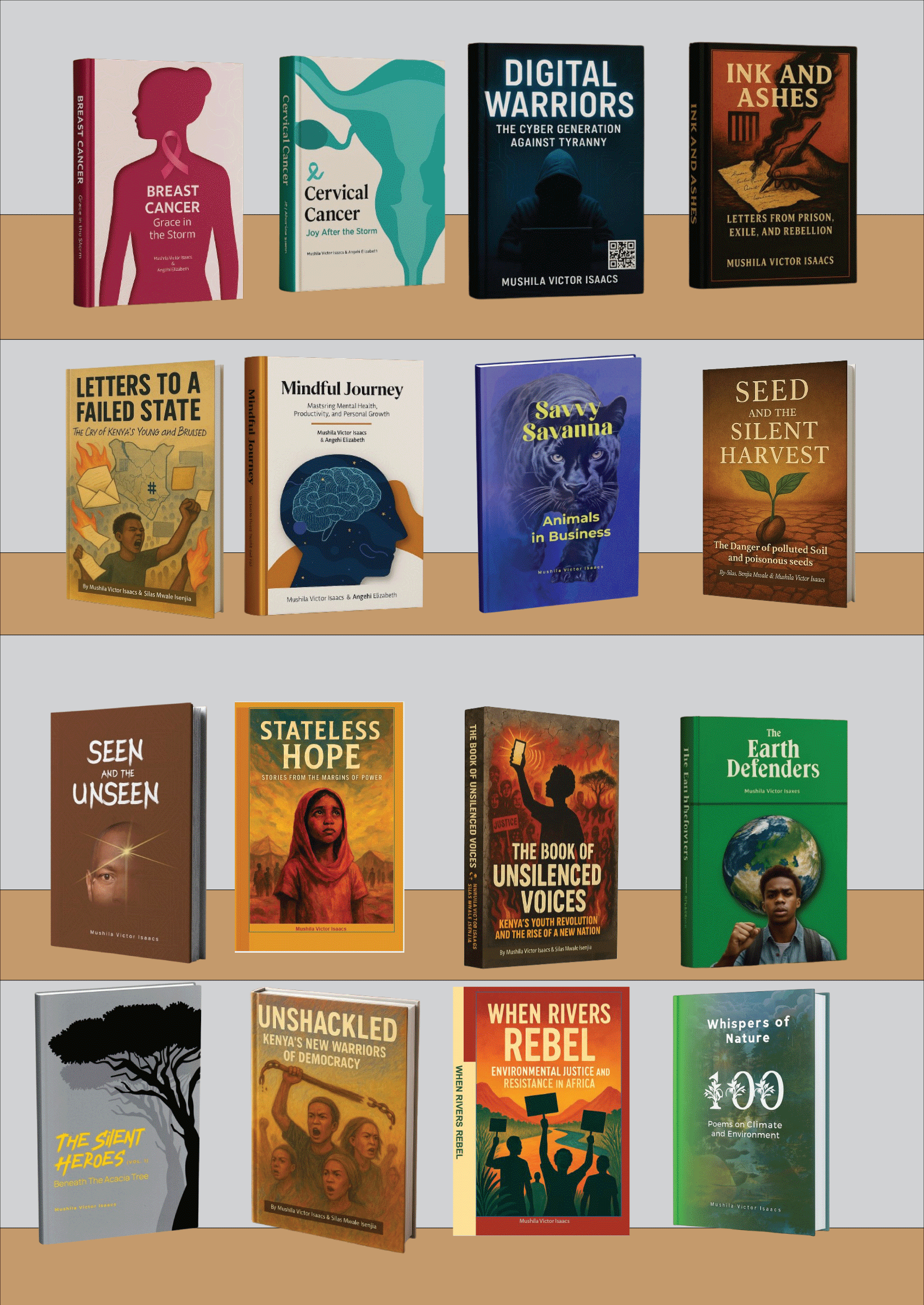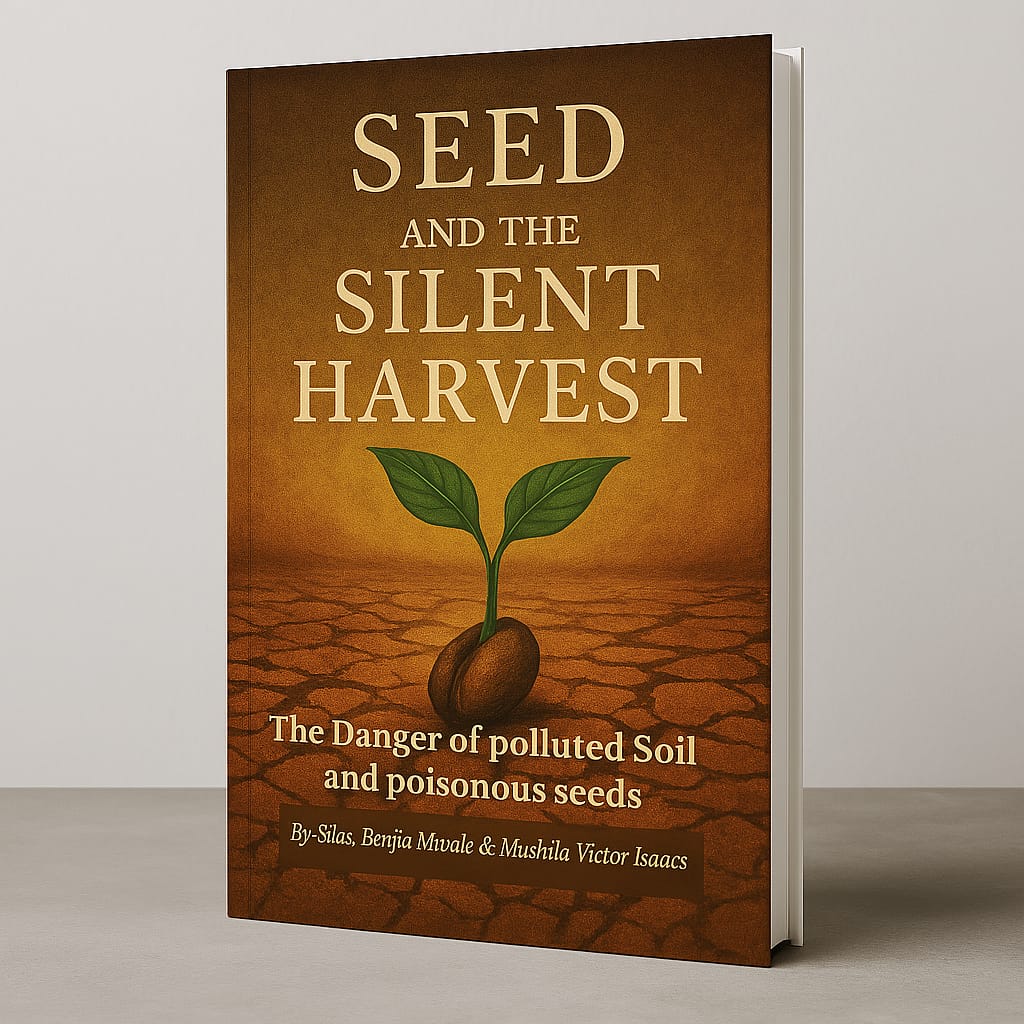The Danger of Polluted Soil and Poisonous Seeds
By Silas Mwale Isenjia & Mushila Victor Isaacs
What happens when silence takes root in the soil of injustice?
In a nation where quiet has long masqueraded as peace, Seed of the Silent Harvest unearths a haunting narrative of buried truths, generational wounds, and quiet resistance.
This evocative tale follows forgotten villagers, disillusioned youth, and haunted elders—each carrying fragments of a hidden history. As secrets fester beneath the surface, rebellion begins to stir. The poisoned soil of corruption, ideological decay, and environmental neglect threatens to choke the future.
Yet from this tainted ground, a new generation dares to rise—challenging the systems that silenced them for too long.
A poetic reckoning. A chronicle of resilience. A call to confront what we dare not name.
Seed of the Silent Harvest is more than a story—it’s a mirror held to our past and a warning whispered to our future.
Some seeds, once planted, will break the earth wide open.
Chapter One Summary: The River That Forgot
In Chapter One, The River That Forgot, Achieng returns to her childhood village of Kimbule, only to find it transformed from a once-thriving landscape into a hushed wasteland of cracked earth and fading memory. Her homecoming is steeped in grief—for her late mother, for the land’s decay, and for the stark contrast between global food policy and local hunger. Through evocative imagery and quiet dialogue, the chapter introduces the book’s central themes: environmental collapse, cultural erosion, and the haunting silence of a community surviving on foreign aid and forgotten hope.
Selected Excerpt
“The river has forgotten us.
The land no longer speaks.
The people do not mourn aloud.
I am home. But it feels like trespassing.”
This excerpt, written in Achieng’s notebook by kerosene light, encapsulates the chapter’s emotional core—alienation, ecological grief, and the quiet ache of returning to a place that no longer remembers you.
Chapter Two Summary: The Weight Beneath the Dust
In Chapter Two, The Weight Beneath the Dust, Achieng’s deepening encounter with Kimbule reveals a landscape where dust symbolizes not just environmental neglect but emotional erosion. Her late mother’s barren garden and a resource-starved school reflect a community stripped of dignity and care. A brief exchange with a child reframes soil as a living entity, echoing the village’s hunger for renewal. Her proposals to Mr. Baraka—seed banks and indigenous farming—are met with resistance, yet her resolve hardens. The chapter ends with a quiet gift from Kip—a single bean seed—marking Achieng’s shift from grief to action as she begins mapping gardens in search of buried hope.
Selected Excerpt
“The dust is heavy because it carries silence. I don’t need to wake the dead. I need to feed the living.”
This line, written in Achieng’s notebook, distills the emotional and thematic weight of the chapter—grief transformed into purpose, and memory into movement.
Order Your Copy Today
Pricing:
| Quantity | Price per Copy |
|---|---|
| 1–30 copies | KSh 1,200 |
| 31–50 copies | KSh 1,000 |
| 51–200 copies | KSh 600 |
| 201–500 copies | KSh 500 |
| 501–1,000 copies | KSh 400 |
Free delivery within Nairobi and surrounding areas.
Let’s Spread the Word
Tag us, share your reading moments, or post a photo with your copy using #MushilaWrites.
Follow the journey on Instagram, Facebook, and Twitter @MushilaWrites.
Together, we can turn pages—and lives.


